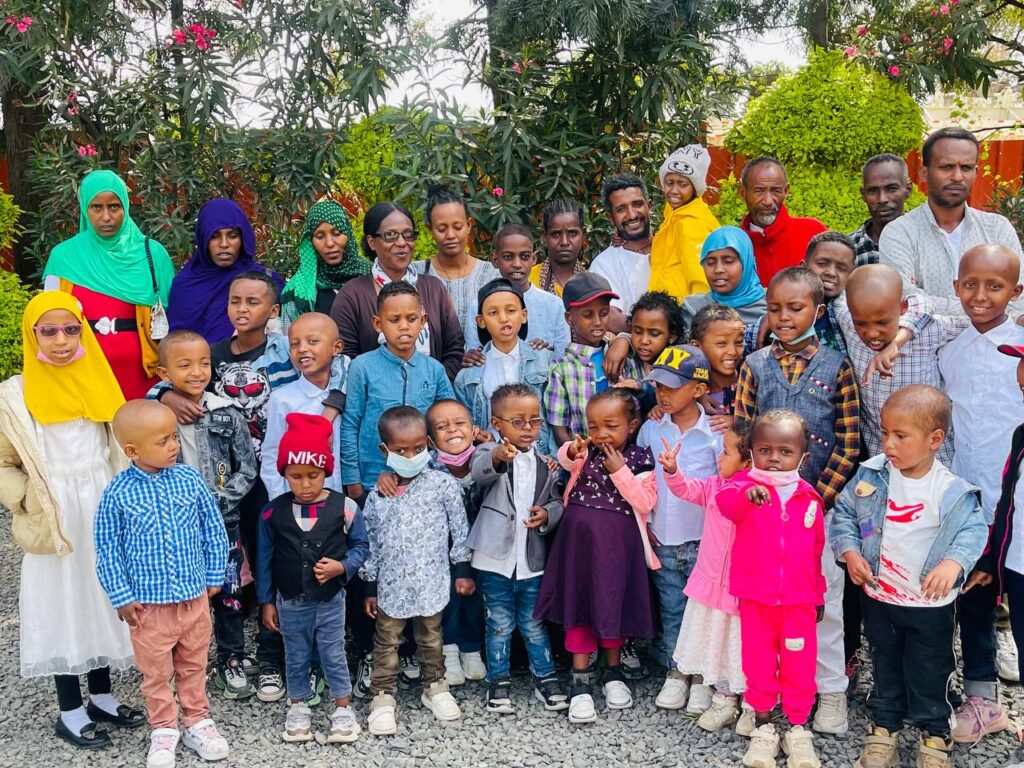
In Ethiopia, around 1,200 children are diagnosed with blood cancer each year. However, more than 80% of them only present themselves at the Childhood Cancer Center in Addis Ababa at an advanced stage—often only after life-threatening complications have occurred. Early diagnosis can increase the survival rate from under 20% to up to 70%.
Many families from rural areas face nearly insurmountable obstacles: transport costs of up to $50 per trip and lack of accommodation often lead to dangerous delays. The Childhood Cancer Center offers parents a place where they do not have to sleep in hospital corridors for days or postpone treatment due to financial reasons. Families here receive not only medical care but also psychological support and a place of hope.
Together with our partner, the Tesfa Addis Parents Childhood Cancer Organization (TAPCCO), a local NGO dedicated to supporting cancer patients and their families in Ethiopia, we have launched this Awareness Campaign.
Our goal is twofold: on one hand, to raise awareness about early symptoms such as persistent fever, bone pain, or unexplained bleeding in order to shorten the time to diagnosis; on the other hand, to raise funds to reduce financial barriers and give affected families peace of mind—especially through the expansion of psychosocial support services.
The existing family-friendly accommodations currently offer space for 20 accompanying persons, but the need is much greater. Together, we want to expand these capacities: additional sleeping places, improved sanitary facilities, and enhanced psychosocial support should enable even more families to have a worry-free stay during treatment.
With this Awareness Campaign, we aim to bring the topic of cancer—especially blood cancer in children, more into the public eye, as it remains largely untreated and little known, particularly in rural regions. We provide important information for those affected and their families, while simultaneously raising funds to expand additional beds, necessary infrastructure, extended psychosocial care, and much more.
